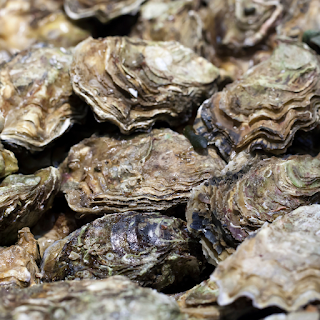The Cockrell Creek sewage leaks have triggered an emergency closure pursuant to the National Shellfish Sanitation Program (NSSP). According to the FDA’s NSSP web page,
The National Shellfish Sanitation Program (NSSP) is the federal/state cooperative program recognized by the U. S. Food and Drug Administration (FDA) and the Interstate Shellfish Sanitation Conference (ISSC) for the sanitary control of shellfish produced and sold for human consumption. The purpose of the NSSP is to promote and improve the sanitation of shellfish (oysters, clams, mussels and scallops) moving in interstate commerce through federal/state cooperation and uniformity of State shellfish programs. Participants in the NSSP include agencies from shellfish producing and non-producing States, FDA, EPA, NOAA, and the shellfish industry. Under international agreements with FDA, foreign governments also participate in the NSSP. Other components of the NSSP include program guidelines, State growing area classification and dealer certification programs, and FDA evaluation of State program elements.*
The Guide for the Control of Molluscan Shellfish - 2019 Revision (PDF) operationalizes the program. Section II, Chapter IV, @.03 A (5)(d)(ii) (p 50) contains the pertinent information regarding the Cockrell Creek leak:
(ii) For emergency closures of harvest areas caused by the occurrence of raw untreated sewage discharged from a large community sewage collection system or WWSD, the analytical sample results shall not exceed the levels established in Chapter IV @.02 E or pre-determined levels established by the Authority based on studies conducted on regional species under regional conditions from shellfish samples collected no sooner than seven (7) days after contamination has ceased and from representative locations in each growing area potentially impacted or until the event is over and twenty-one (21) days have passed;
According to a VDH shellfish program staffer, each time a leak is detected, the 21-day clock starts again since the three-week period is based on the stop of the spill.
The VDH shellfish program staffer also explained that water testing (and exceptions) allow for a sooner than 21-day re-opening of a waterway but in the case of Cockrell Creek, “there is little to no harvest occuring and we have poor background data available.”
* FDA (US Food and Drug Administration), EPA (US Environmental Protection Agency), NOAA (National Oceanic and Atmospheric Administration)
